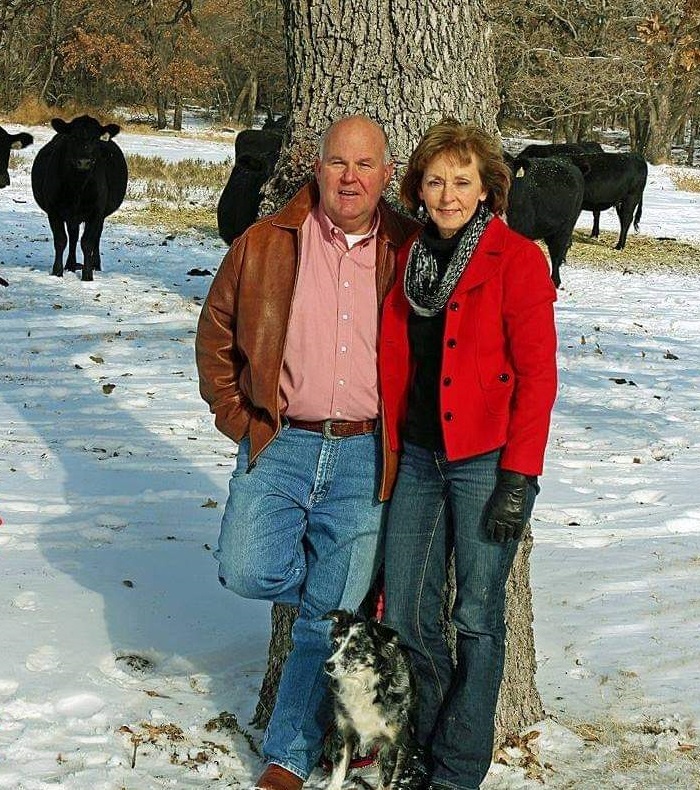Gary Jones has served as city manager for the city of Altus, Oklahoma, since 2019. The city has owned its electric utility since 1929 and currently has about 9,000 electric customers. Jones previously served as Oklahoma’s State Auditor and Inspector for eight years, and a four-year term as a Comanche County Commissioner. He was elected five times as Chairman of the Oklahoma Republican Party. When he was a county commissioner, he received the Superior Achievement Award from the Oklahoma Good Roads and Streets Association. In 2016, Jones received the Sunshine Award, which recognizes a public official that has shown a commitment to freedom of information. He is a graduate of Cameron University, where he earned his degree in business administration with a minor in accounting. He became a Certified Public Accountant in 2000. He also currently serves on the Board of Directors for the Oklahoma Municipal Power Authority.
How did you come to work in public power?
 Before this job, I was a state auditor for eight years, a position which was term limited. When I retired, I would go check the cows and feed them, and then, when I’d go back inside, my options were to watch TV or get on the internet. I was told that, at my house, we weren’t going to do that. I felt that I had to go back to work, and the opportunity came up for this position.
Before this job, I was a state auditor for eight years, a position which was term limited. When I retired, I would go check the cows and feed them, and then, when I’d go back inside, my options were to watch TV or get on the internet. I was told that, at my house, we weren’t going to do that. I felt that I had to go back to work, and the opportunity came up for this position.
When they interviewed me, one of the interviewers remarked that I didn’t have “any municipal experience,” but my response was that I’ve got all kinds of municipal experience. I’ve audited so many cities, I can tell you what not to do. I could see how people were able to do innovative things, and I had the benefit of seeing what was done right by some people and what was done wrong in putting together plans.
When I was county commissioner, one thing I liked was that if you could identify a problem together, then you could find a solution and go do that. As a city manager, you can do the same. The previous city manager negotiated a resignation on a 5-4 vote, and two weeks later, they hired me on a 5-4 vote. And since then, all votes have been 9-0. So, we’ve worked together and got a lot of things done.

How do accountability and community ownership overlap?
I’m the city manager, which means if something’s wrong, it’s my fault. But it’s also up to me to find a way to fix it.
We’re constantly looking for better ways of doing things. We want to make sure that we’re billing people properly and that we’re making good use of their funds. A lot of small communities are always looking for grants because they see they have a problem and don’t have the revenue. One thing we’ve been innovative about is looking at how we can bring all the different resources together and finding ways through other income sources to make it all happen.
We are the smallest community in the U.S. supporting a major military installation. We’re always looking at how we can work together. With military bases, the big issue is resiliency — being able to continue operations if there’s a storm or something else that might interfere with their ability to perform their mission. For us, the main threats are ice storms and tornadoes. If we lose our transmission lines, we lose our electricity. Ninety percent of the people who live on base actually work in Altus. We’re looking at putting in some generation here to make sure that, if we lose our electrical transmission, the essential services in the community are still up and going.
What achievements are you proud of that your leadership has done for the city?
Housing is an issue across the country, but especially in military communities. We had a good job at the base that couldn’t be filled because there was no place for the person to live. We did a housing study and found we were about 550-600 houses short. We went to the builders and asked what it would take to build the type of housing that’s needed. They said they can’t take the risk to spend millions of dollars to put the infrastructure in. We found funding so that we could put in water, sewer, electrical… so they basically had lots that were shovel ready.
We’re going to hit our goal in about five years. Some of the land where new developments are going in was purchased with the help of the military, and plans had been designed in 2000, but they couldn’t figure out how to move forward. In fact, as we do this housing addition, we're looking to expand our 9-hole golf course into an 18-hole golf course. And as we're doing this, someone found a plan — from 1959 — to add those extra nine holes. We're in the process of making that happen now.
What priorities does the city have right now in planning for its future?
My goal is to address about 50 years’ worth of deferred maintenance and to put us on firm financial ground. We have water and sewer lines that need to be repaired. We just got through redoing our water towers, which hadn’t been redone for probably 40 years.
In Oklahoma, we have limited revenues because we don’t have income tax. If we didn’t have the electric company, we would be relying primarily on sales tax, and that’s limited. If we run efficiently and are able to generate additional revenues, then we can use those for not just fixing the electrical, but also the sewer, water, and other systems. We put together a plan to restructure our sales tax, because we had gotten so dependent on electric rates that we had some of the highest in the region. We haven’t had an increase in our electric rates since I’ve been here; we’ve reduced them by 6%.
I would love to have enough generation to power the city on locally generated power. We have plans to put some generation on a 160-acre industrial park next to the air base. The first step is to get the initial thing done and putting a plan together to make it happen.
The goal is not just leaving it better than we found it, but leaving the administration within the city the ability to continue to move forward. We want to figure out how to get the hardest part of it done so they don’t hit roadblocks down the line.
What makes for a successful leader for a public power utility?
The big thing is to be able to understand what your strengths are and utilize the people that have strengths in another area. I can’t tell you exactly how our electric system works. I have people that do, and I listen to them.
It’s important to keep your governing body informed so they understand what you’re trying to accomplish. They can be good partners when everybody’s moving in the same direction, but if you don’t keep them informed, then that’s more difficult to do.
One thing that was useful was really understanding our strengths as a community. You’ll have people say we need to be a high-tech community… but if you don’t have the attributes or characteristics to support that, it won’t happen. Our big things are military, agriculture, and sports. We’re building a world-class trap and skeet shooting facility, and it’s something the community is really into.
I’ve had the opportunity to go to some bigger communities that make more money, but it’s a lot more rewarding to work with a community with shared values and a shared vision, as opposed to chasing the dollars. As we work together to accomplish the vision … it’s very rewarding.

